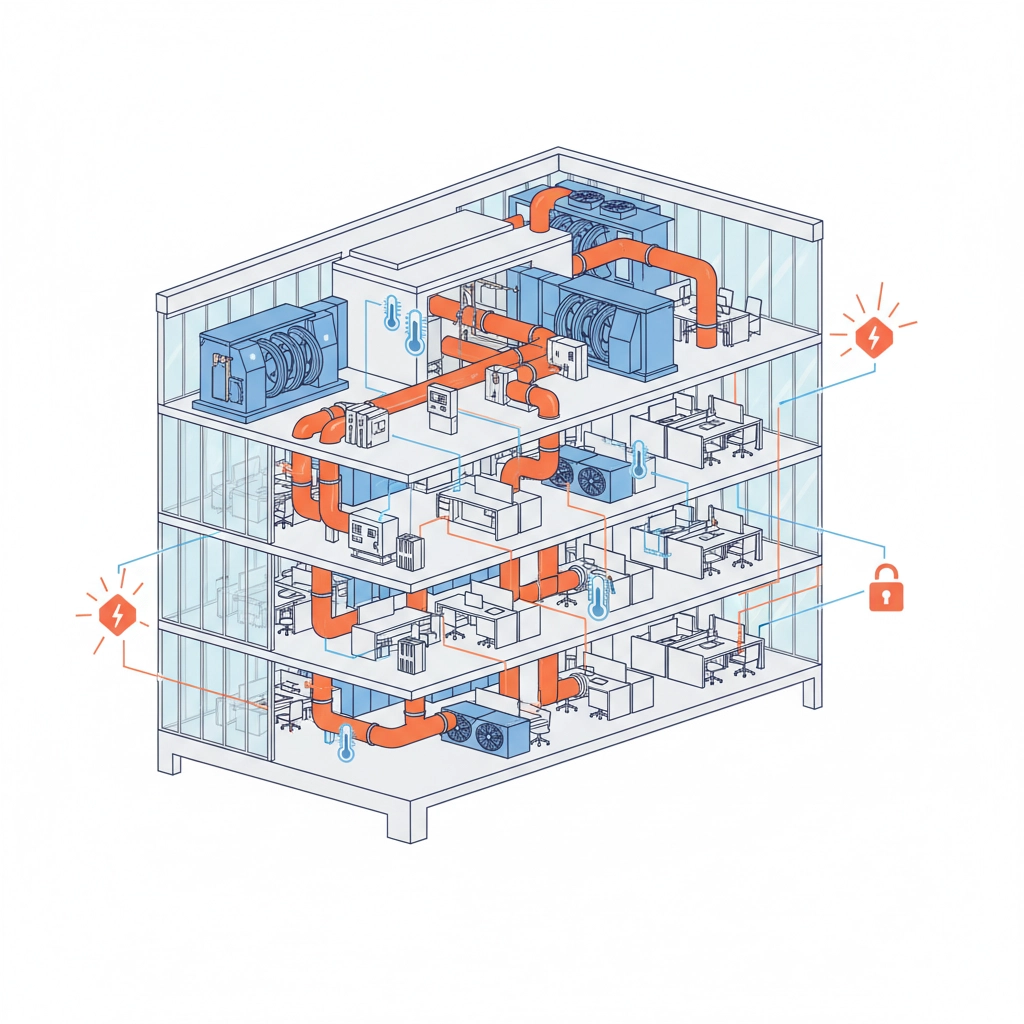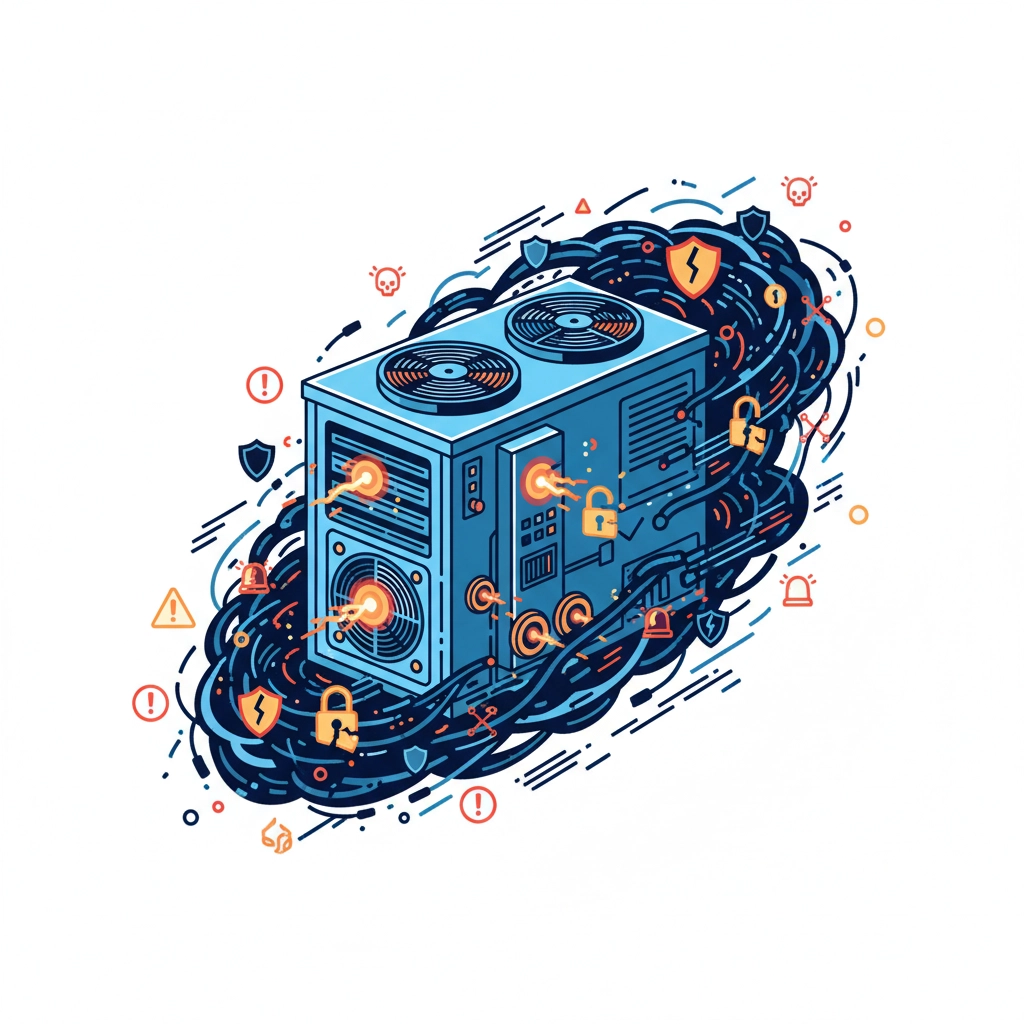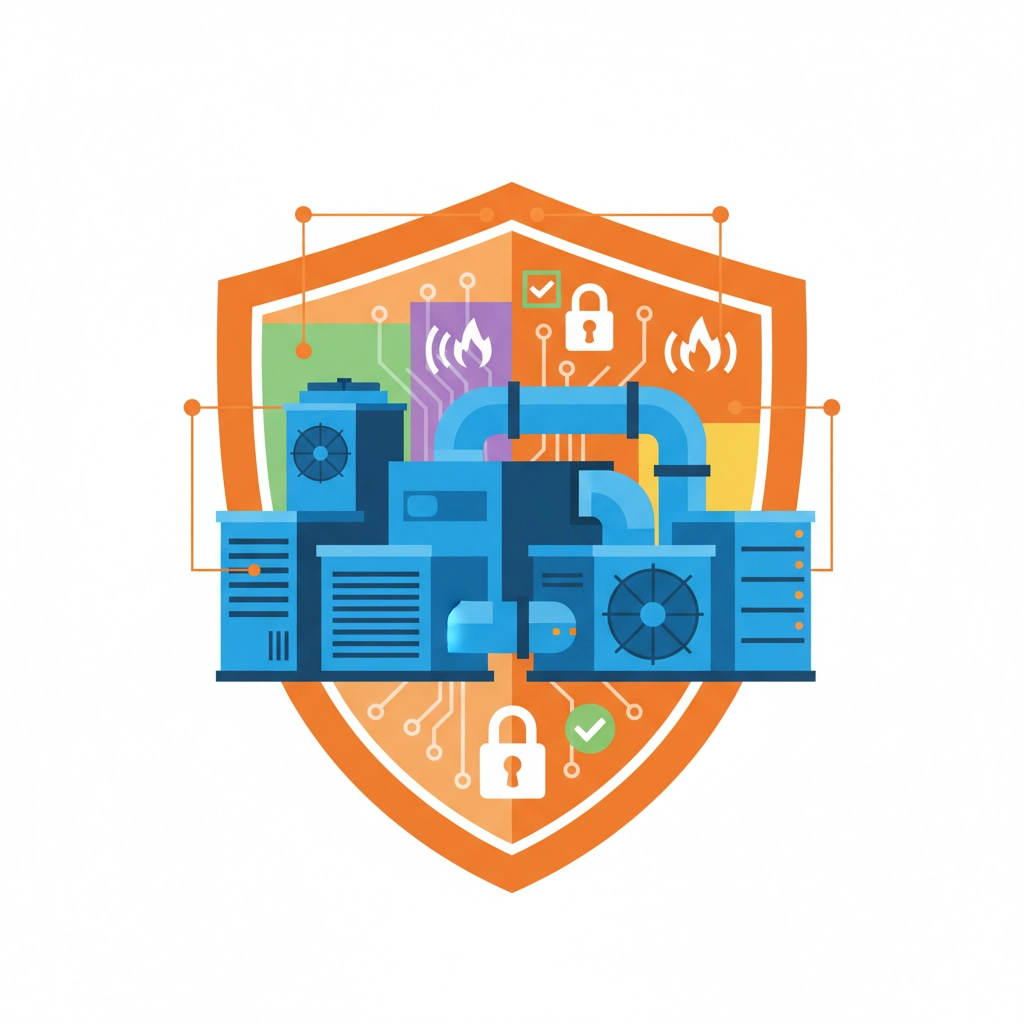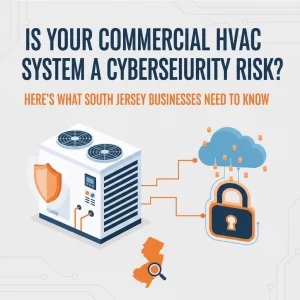Is Your Commercial HVAC System a Cybersecurity Risk? Here's What South Jersey Businesses Need to Know
South Jersey Heating and Cooling
info@sjhcservice.com
(856) 230-3266
If you think your commercial HVAC system is just about heating and cooling, think again. In today's connected world, your climate control system has become a potential gateway for cybercriminals to infiltrate your South Jersey business. The reality is stark: modern HVAC systems are increasingly targeted by hackers, and many business owners don't even realize they're at risk.
At South Jersey Heating and Cooling, we've seen firsthand how businesses are grappling with this new threat landscape. The question isn't whether your HVAC system could be a cybersecurity risk: it's how significant that risk is and what you can do about it.
Why Your HVAC System Has Become a Prime Target
Your commercial HVAC system isn't the isolated, mechanical-only system it used to be. Today's smart HVAC infrastructure connects to building automation systems, cloud platforms, and internet-enabled devices that make your facility more efficient: but also more vulnerable.
Cybercriminals view HVAC systems as weak links in your security chain. While your IT department may have locked down computers and servers with robust security measures, HVAC systems often receive less attention from a cybersecurity perspective. Yet these systems typically connect to the same networks as your critical business operations.

The integration of Internet of Things (IoT) devices throughout modern HVAC systems creates multiple entry points for attackers. Smart thermostats, sensors, and control units all communicate over networks that, if compromised, can provide access to broader building systems. For businesses that depend on precise climate control: like pharmaceutical facilities, data centers, or medical practices: a successful attack can be devastating.
The Real Threats Your Business Faces
Understanding the specific ways cybercriminals target HVAC systems helps you recognize vulnerabilities in your own setup. Here are the most common attack methods affecting South Jersey businesses:
Ransomware attacks represent the most disruptive threat. Criminals encrypt your HVAC control systems and demand payment to restore access. Imagine your entire facility's climate control system going offline during a South Jersey summer heat wave: that's the kind of operational chaos ransomware can create.
Phishing and credential theft attacks target your employees or HVAC maintenance vendors with deceptive emails designed to steal login credentials. Once attackers have these credentials, they can access your HVAC systems remotely and manipulate operations without your knowledge.
Man-in-the-middle attacks intercept communications between your HVAC equipment and control servers. Hackers can then manipulate temperature settings, disable safety alarms, or completely shut down systems. The scary part? These attacks can happen without anyone immediately noticing.

Denial of Service (DoS) attacks flood your HVAC networks with traffic, overwhelming the systems and causing temporary or permanent shutdowns. While less common than other attack types, DoS attacks can be particularly damaging during extreme weather conditions when climate control is critical.
Unauthorized remote access exploits poorly secured remote monitoring systems that HVAC companies use for maintenance and troubleshooting. If these systems aren't properly protected, they become highways for cybercriminals to access your building's climate control infrastructure.
Critical Vulnerabilities Hiding in Plain Sight
Many South Jersey businesses unknowingly operate with cybersecurity gaps that make them easy targets. Supply chain vulnerabilities top the list: these occur when third-party software or equipment contains hidden security flaws that cybercriminals can exploit.
Aging SCADA (Supervisory Control and Data Acquisition) systems pose particular risks. Many facilities still rely on older SCADA infrastructure that lacks regular security updates. These legacy systems weren't designed with modern cybersecurity threats in mind, making them especially vulnerable to attack.
Mobile device vulnerabilities create another entry point. If your staff uses mobile devices to monitor or control HVAC systems, each device represents a potential security risk if not properly secured and managed.
Weak identity and access management policies allow unauthorized individuals to gain access to sensitive HVAC controls. Without proper user authentication and regular permission reviews, you may not even know who has access to your building's climate control systems.
Building Your Defense Strategy
Protecting your HVAC system from cyber threats requires a comprehensive approach that addresses both technical vulnerabilities and human factors. The good news? Most protective measures are straightforward to implement with proper guidance.
Secure all connected devices by ensuring every IoT component in your HVAC system has strong authentication protocols and receives regular firmware updates. This includes smart thermostats, sensors, control units, and any other internet-connected equipment. Outdated firmware is one of the easiest ways for attackers to gain access to your systems.
Implement network segmentation to isolate your HVAC devices from other parts of your business network. This means that even if attackers compromise your climate control system, they can't easily move laterally to access your financial systems, customer databases, or other critical business applications.

Establish robust authentication protocols across all access points to your HVAC software and controls. This includes requiring strong passwords, implementing multi-factor authentication, and regularly updating access credentials. Every person who can access your HVAC systems should go through proper authentication procedures.
Conduct regular security audits to identify vulnerabilities across your networks, software, and control systems. These assessments should include both your primary HVAC equipment and any third-party applications or remote access tools used for system management.
Invest in comprehensive cybersecurity training for your employees. Many successful attacks start with human error: an employee clicking on a malicious link or downloading infected software. Training helps your team recognize phishing attempts, social engineering tactics, and other common attack methods.
Working with Trusted HVAC Partners
Your HVAC service provider plays a crucial role in your cybersecurity posture. When evaluating vendors, ask about their cybersecurity practices and how they protect customer systems during remote access sessions.
At South Jersey Heating and Cooling, we understand that modern HVAC service goes beyond just heating and cooling maintenance. Our team stays current with cybersecurity best practices and can help assess your system's vulnerability to cyber threats. We work with businesses throughout South Jersey to implement security measures that protect both climate control functionality and broader network security.
Vet all third-party software and vendors that interact with your HVAC systems. This includes maintenance companies, software providers, and equipment manufacturers. Each vendor should demonstrate robust cybersecurity practices and provide regular security updates for their products and services.
Evaluate aging control systems to determine whether they need updates or complete replacement to meet modern security standards. While upgrading infrastructure requires investment, the cost of dealing with a successful cyber attack typically far exceeds preventive measures.
The Cost of Inaction
The financial impact of HVAC-related cyber attacks extends well beyond ransom payments or system repair costs. Operational downtime during extreme weather can make your facility unusable, resulting in lost productivity, cancelled appointments, and dissatisfied customers or tenants.
Building safety systems compromised through HVAC networks can create liability issues and regulatory compliance problems. For businesses in regulated industries, a cybersecurity incident affecting building systems may trigger reporting requirements and potential fines.
Reputation damage from a successful cyber attack can have long-lasting effects on your business. Customers and partners may lose confidence in your ability to protect sensitive information and maintain reliable operations.
Taking Action to Protect Your Business
The intersection of HVAC systems and cybersecurity represents a growing challenge for South Jersey businesses, but it's not insurmountable. By understanding the risks, implementing proper security measures, and working with knowledgeable service providers, you can significantly reduce your vulnerability to cyber threats.
Start by conducting an assessment of your current HVAC infrastructure to identify connected devices, network access points, and potential vulnerabilities. Document who has access to your systems and what security measures are currently in place.
Don't wait for a security incident to take cybersecurity seriously. The proactive steps you take today can prevent costly disruptions and protect your business reputation tomorrow.
If you're concerned about your commercial HVAC system's cybersecurity posture, South Jersey Heating and Cooling can help assess your risks and implement protective measures. Our experienced team understands both the technical and security aspects of modern commercial climate control systems.
Ready to secure your HVAC systems against cyber threats? Contact South Jersey Heating and Cooling today at 609-488-2253 or visit our service request page to schedule a comprehensive system assessment. Don't let your climate control system become a security liability: take action to protect your South Jersey business today.
South Jersey Heating and Cooling | info@sjhcservice.com | (732) 616-4617









